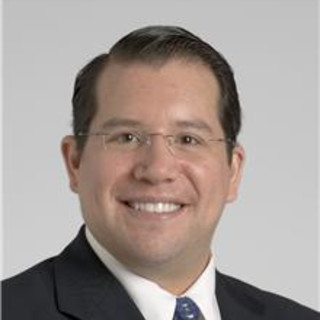
Despite its relatively young age, Hospital Medicine is the largest growing specialty in the United States, and hospitalists are at the frontline of medical care delivery, as well as are strong stakeholders at multiple levels in the organizational scheme of healthcare systems.
Early career hospitalists (or hospitalists within the first 5 years of experience) face the challenge of developing skills that will allow their personal and professional development and career sustainability. Unfortunately, mentorship has not necessarily been provided prior to their professional experience, and then once immersed in a busy clinical scenario, it may be easy to lose track of areas of opportunity for their own professional growth.
The continuous discussion with different generations of hospitalists led the workshop authors to brainstorm on the current needs and gaps that young hospitalists face to develop their own skills for success within the healthcare system. The relevance of having a basic set of skills will allow the young hospitalist to address and resolve their current needs and gaps, which will have a positive impact at both the personal and professional level.
Recently at HM 2018, the Society of Hospital Medicine’s annual meeting, I presented a workshop called “Leadership Essentials for Success in Hospital Medicine” to create awareness of the necessary skills required for professional growth: leverage of personal value-proposition, negotiation, and networking. This skill set can be immediately implemented to enhance the professional advancement of young hospitalists as well as the sustainability of their career in Hospital Medicine.
Value proposition
Self-reflection and insight awareness of each individual own strengths and needs is fundamental in order to gain perspective of their current value proposition. (Who you are? What do you bring to the table?) Often, we tend to miss our relevance and contributions to the healthcare system (e.g. committee participation, teaching in the wards, mentoring students, local institutional citizenship, etc.)
An accurate and appropriately weighted value proposition allows the hospitalist to demonstrate their own relevance and contribution to the healthcare system. The impact of this is huge: it allows recognition by the healthcare leadership of their individual contributions, but also identification of skill sets that can be leveraged subsequently with appropriate allocation of human resources in strategic areas within the healthcare system. (How do you decide who will be your quality officer? Or your academic steering committee member? Etc.)
How can the value proposition be enhanced?
- By incorporating self-reflection and insight into current strengths and weaknesses.
- By developing a vision of success and what is needed to achieve success.
- By maintaining a continuous coaching and mentorship relationship.
Negotiation
The second skill set is having good communication and negotiation skills. The impact of this skill set transcends beyond the own professional world — its applicability is quite wide in multiple environments: academic, private, government, etc.
Unfortunately, negotiation is an ability that is often not well taught in medical school or residency (if taught at all). This skill allows the hospitalist to leverage their own strengths and value proposition for the best advantage of both themselves and the healthcare system. The negotiation conversation can led to successfully reach projected goals or positions (e.g. protected time, leadership position, new job position, etc.)
However, everybody must always remember 2 things:
- A good value proposition without appropriate negotiation skills will lead to missed opportunities for personal and professional growth.
- Never forget the relevance of collaboration; negotiation should benefit both partners.
Networking
The third skill set is the development of a strong professional network at both their own healthcare system, medical school, as well as nationally. This is fundamental for opening new professional perspectives as well as individual career advancement. A hospitalist with a good value proposition and excellent negotiation skills without an appropriate network asset may not achieve opportunities that their own potential allows.
Communication and engagement is crucial: Networking do not happen without talking to others! You must “come out of the shell,” exchange business cards, and get to know people. In 2018, there is an abundance of tools in place for successful networking integration (e.g. social media platforms, professional societies’ discussion groups, etc.)
When returning back from a national meeting or even a local activity, always close the communication loop — as this always strengthens opportunities for future collaboration. Maintain the contact “fresh” and keep creativity flowing.
Hopefully, when our young hospitalists (and also mid-career) return back to their workplaces, they can put into practice these skills set, and aim for enhanced professional development. The most important thing is to consistently maintain the enthusiasm and joy for their professional career and patient care, with constant and consistent personal growth, being an inspiration for future generations.
Moises Auron, MD, FAAP, FACP, SFHM is the quality improvement and patient safety officer in the Department of Hospital Medicine at Cleveland Clinic. Auron is an associate professor of Medicine and Pediatrics, Cleveland Clinic Lerner College of Medicine of Case Western Reserve University.







